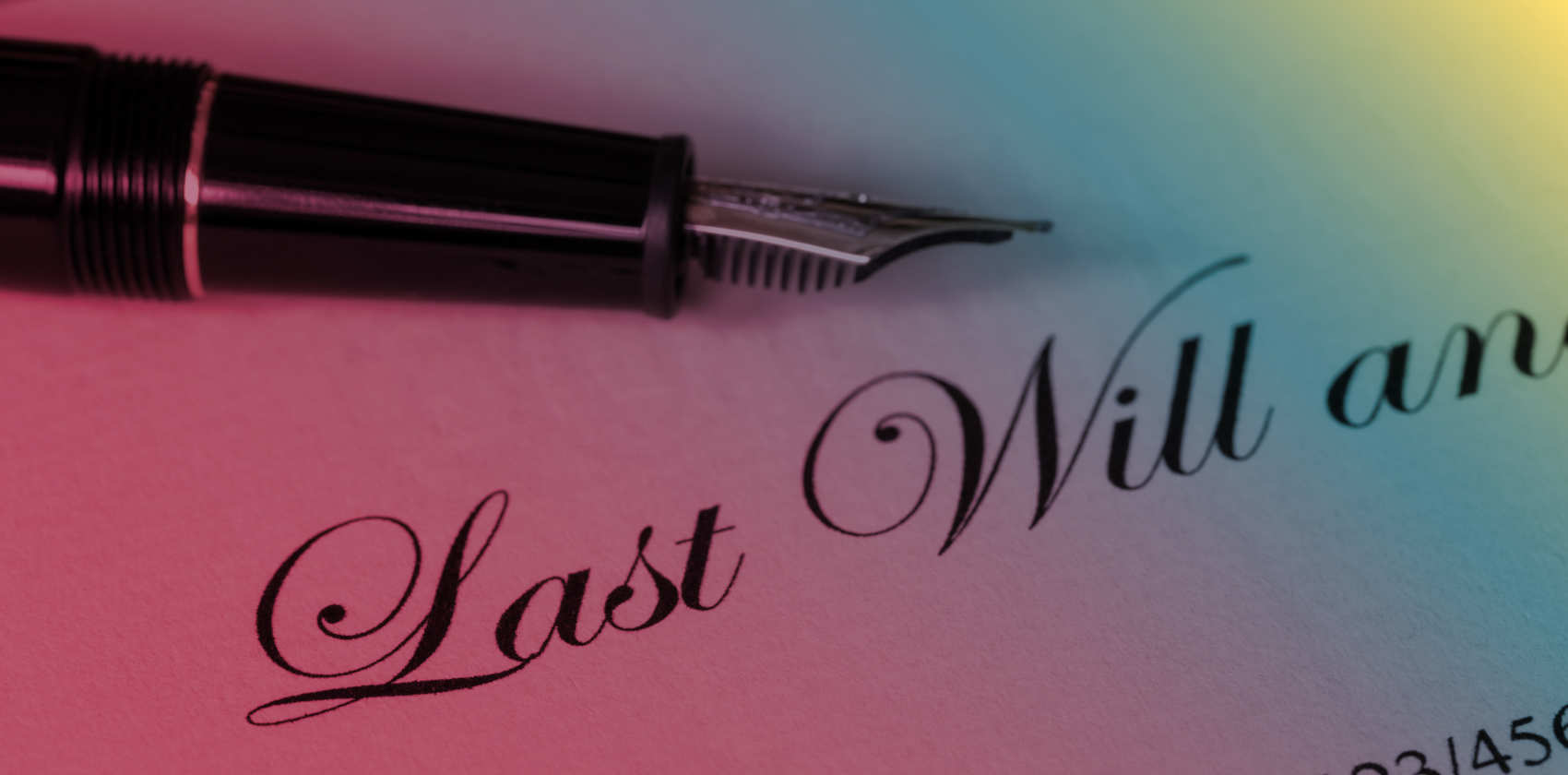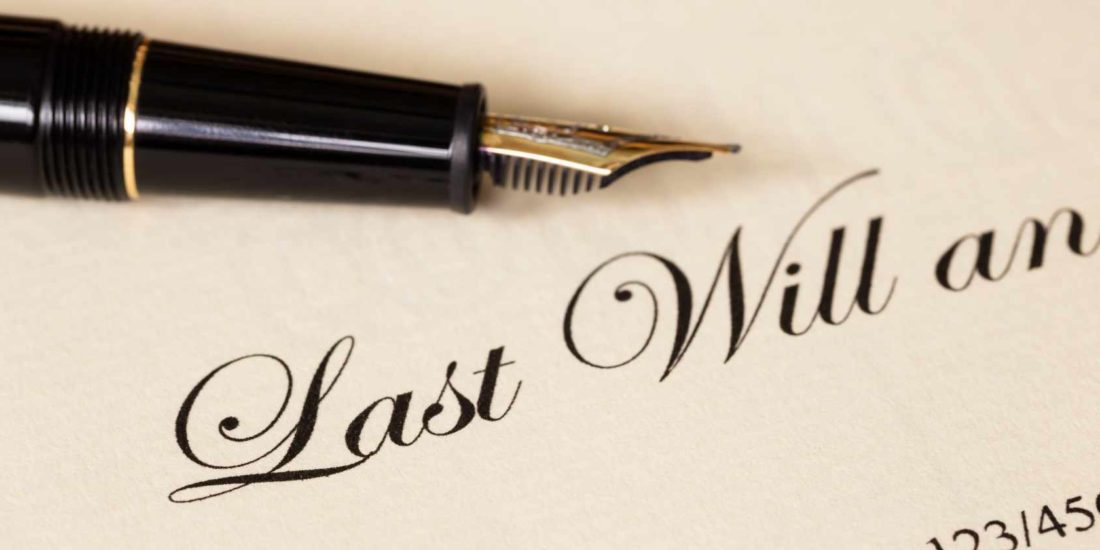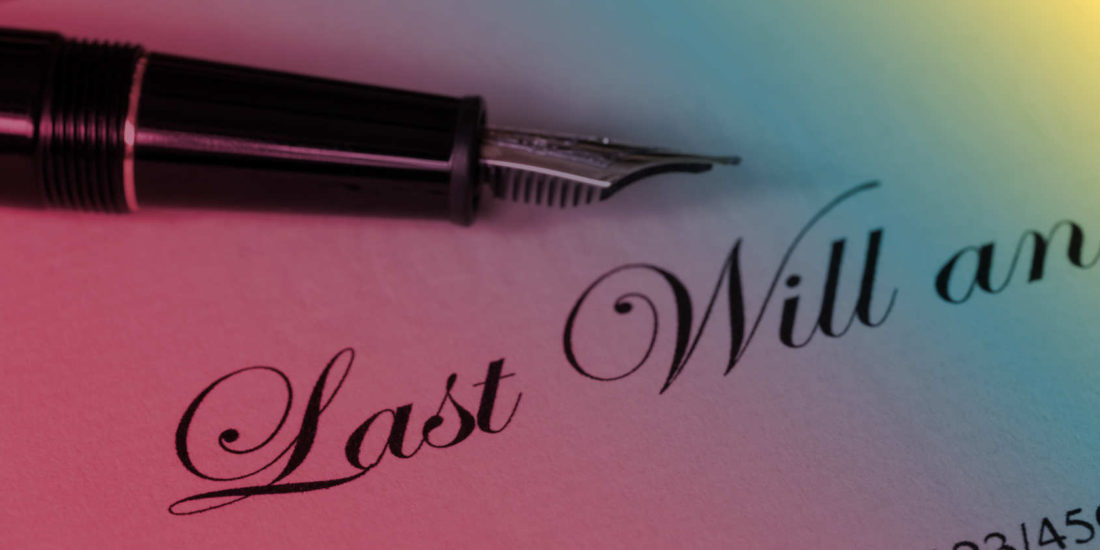
Legal Responsibilities Borne by Wills-Drafting Lawyers That are Not Apparent on the Face of the Will
The prevalence of DIY Wills online and Wills-drafting services by non-lawyers makes Wills-drafting appear deceptively simple. Yet, the Court of Appeal in Low Ah Cheow cautioned that Wills are among the most important legal documents that one can execute, and that it would be wrong for lawyers to consider their preparation as “no more than a routine exercise in form filling”. Gleaning from reported decisions over the last five years, this article highlights five easily overlooked responsibilities that Wills-drafting lawyers bear which extend beyond meeting the legal formalities of a Will.
With online DIY Wills being “a dime a dozen”, and non-lawyers offering to draft Wills at meagre costs, the role of the lawyer in Wills-drafting is grossly under-valued and underrated.
Apart from the lawyer’s expertise on the legal formalities (for example, a Will must be in writing and signed by the testator in the presence of two independent witnesses), and translating the testator’s instructions to stock Wills, many do not realise or appreciate that the lawyer’s legal responsibilities extend beyond the words on the face of the Will.
In reviewing reported decisions over the last five years where Wills were challenged and lawyers were called as witnesses, this article highlights five legal responsibilities over and above meeting formalities that Wills-drafting lawyers best bear in mind.
1. The Lawyer as a Witness to the Testator’s Testamentary Capacity
The critical effect of a lawyer’s testimony on a testator’s testamentary capacity
A number of Wills and probate decisions over the past five years1See, for example, ULV v ULW (2019) 3 SLR 1270, VFD and another v VFF and others (2020) SGFC 10, UWF and another v UWH and another (2021) 4 SLR 314 (UWF) and VTJ v VTK (2021) SGFC 78. involved legal challenges to the testator’s testamentary capacity where the testimony of the lawyer who prepared the Will proved crucial.
In ULV v ULW [2019] 3 SLR 1270 (ULV), the lawyer who prepared the Will in dispute testified that the testatrix had “appeared lucid and of sound mind … was able to comprehend information, make decisions, communicate her desires and wishes … [and] appeared to understand the will”. The Court relied on the lawyer’s evidence to find that the testatrix had testamentary capacity and that she had understood and approved the Will that she had made.
Similarly, in VFD v VFF [2020] SGFC 10, the Court relied on the evidence of the lawyer who drafted and witnessed the execution of the Will to find that the testatrix had testamentary capacity when she made her Will. In her decision, the District Judge remarked that the lawyer “gave clear and unwavering evidence that the Testatrix was fully capable of making decisions regarding the 2016 Will”, and she found him to be “an honest and straightforward witness, with no reason to be untruthful”.
A lawyer’s testimony may be crucial in resolving conflicting medical evidence
Where there is conflicting medical evidence pertaining to a testator’s testamentary capacity, evidence from the lawyer who prepared and witnessed the execution of the Will could tip the scales in one party’s favour.
In UWF v UWH [2021] 4 SLR 314 (UWF), the plaintiffs applied to revoke the grant of probate to the defendants by arguing that the testatrix lacked testamentary capacity when she executed the Will.
Both parties’ medical experts agreed that the testatrix was suffering from bipolar disorder with psychosis, but they disagreed on whether her bipolar condition was in remission at the time the Will was executed.
In resolving this dispute, the Court gave “considerable weight” to the evidence of the lawyer who prepared the Will. Apart from the contemporaneous evidence of the testatrix’s behaviour, the Court also noted the lawyer’s ”long relationship” with the testatrix as the latter’s lawyer and friend since the early 1990s. As such, the Court was of the view that the lawyer would have been “in a position to know if [the testatrix] was behaving abnormally or differently from how she usually observed [the testatrix] to behave”.2UWF at paragraph 171. The Judge also remarked that “where the expert witnesses disagree, the Court may place greater weight on factual witnesses”.3UWF at paragraph 170. The Court thus found, based largely on the lawyer’s evidence, that the testatrix had testamentary capacity at the time she made the Will.
As observed by the Court of Appeal in Chee Mu Lin Muriel v Chee Ka Lin Caroline (Chee Ping Chian Alexander and another, interveners) [2010] 4 SLR 373 (albeit not being decided in the last five years):-
“With Singapore’s aging population and the increased life expectancy of Singaporeans, aged members of our community not infrequently experience resultant loss in memory or mental capacity. In these circumstances, it is desirable that members of the legal profession play a part in reducing the opportunities for litigation over testamentary dispositions by testators who are suffering from dementia, Alzheimer’s disease and the whole range of mental illnesses that are associated with old age. If solicitors do their part, it will reduce, if not eliminate, all the borderline cases where doctors are asked to give their best opinions on the mental condition of someone they might not even have attended to, based on medical records which often are not helpful for the purpose at hand.”4Chee Mu Lin Muriel v Chee Ka Lin Caroline (Chee Ping Chian Alexander and another, interveners) (2010) 4 SLR 373 (Muriel Chee) at paragraph 62. (emphasis added)
A lawyer’s contemporaneous notes may serve as compelling evidence of a testator’s testamentary capacity
Rule 5(2)(k) of the Legal Profession (Professional Conduct) Rules 2015 requires lawyers to keep contemporaneous records of all instructions received from clients and all advice rendered to them. The Court of Appeal elaborated:-
“… as a matter of good professional practice, if not professional prudence, the solicitor should make a contemporary written record of his or her attendances on the testator so that he or she would be able to recall exactly what had transpired during the meeting or meetings.”5Muriel Chee at paragraph 60. See also, Low Ah Cheow and others v Ng Hock Guan (2009) 3 SLR(R) 1079 (Low Ah Cheow) at paragraph 73.
In VTJ v VTK [2021] SGFC 78 (VTJ), the Court observed that the lawyer who drafted and witnessed the execution of the Will had kept attendance notes in accordance with his firm’s standard practice in preparing and witnessing Wills. The District Judge eventually relied on those contemporaneous notes to find that the testatrix had testamentary capacity when she executed her Will.
2. The Lawyer as a Witness to the Testator’s Comprehension of the Will
Apart from ascertaining a testator’s testamentary capacity, a lawyer also has to ensure that the testator understands and approves the contents of the Will, such that it reflects the wishes of the testator.
Thus, case law behoves a lawyer to thoroughly discuss with the testator all the foreseeable legal issues and potential complications that may arise from the contents of the Will.6Low Ah Cheow at paragraph 73. The lawyer also has to confirm with the testator prior to the execution of the Will that the contents of the Will as drafted accurately express the testator’s intentions, and obtain a thorough and accurate translation for the testator where necessary.7Low Ah Cheow at paragraph 73.
VTL v VTM [2021] SGHCF 30 (VTL) provides a useful illustration of the importance of the lawyer’s role in making sure that this is done properly. In VTL, the defendant argued that the mutual Wills executed by the testator and testatrix were invalid as the mutual Wills had not been properly explained to the testator and testatrix.
However, the Court relied on the evidence of the lawyer who prepared and witnessed the execution of the mutual Wills to find that they were valid. In particular, the Court accepted the lawyer’s evidence that he had not deviated from his firm’s ”standard practices” for Wills-making. These included satisfying himself that the clients knew what they were there for and what they wanted done, inviting other persons to leave the room when taking instructions from his clients, excluding beneficiaries from any discussion about the contents of the Will, and using a Chinese-speaking colleague to translate to the clients.
3. The Lawyer as a Witness to the Extent of the Assets Covered by the Will
In the case of Teo Song Kheng v Teo Poh Hoon [2020] SGHC 47 (Teo Song Kheng), involving the two co-executors of the Will, the plaintiff sued the defendant for a specified list of items (the Disputed Items) comprising mostly jewellery, on the ground that they were inter vivos gifts made to him by his deceased mother. Although the testator’s Will did not specifically name the Disputed Items, the defendant argued that the Disputed Items were part of the deceased’s estate to be distributed among the named beneficiaries in the Will.
In the course of the trial however, the plaintiff changed tact by suggesting that the Disputed Items were meant to be gifted to him only after the testator passed away.
The Court found that the plaintiff’s argument, taken to its logical conclusion, “would have rendered them the subject of a nuncupative will”. Given that such testamentary dispositions not made in writing are invalid, the Court concluded that any alleged gifts of the Disputed Items after the mother’s death would have been invalid.
Whilst the case is silent on whether the lawyer who drafted the Will was called as a witness, it is posited that had the plaintiff not changed tact, the case may well have turned on the lawyer’s records and recollection as to the extent of the assets covered by the Will.
4. The Lawyer as a Witness to the Testator’s Intention Behind Bespoke Clauses in the Will
If a specially-drafted clause becomes the subject of a dispute later on, the Court could look to the correspondence between the testator and the lawyer who prepared the testator’s Will to discern the testator’s intentions behind the clause.8Consider the discussion in Leong Siew Khuen and others v Leong Yeok Har @ Leong Yeok Pheng and others (2020) SGHCF 14, on when a solicitor may have to disclose his communications with the testator in respect of the execution of the Will, if at all.
In GDL v GDR [2022] SGHC 30 (GDL), the plaintiffs, who were the daughters of the testator, claimed against the executrixes of the deceased testator’s estate for an additional maintenance of $15,000 per plaintiff per year under a tailor-made clause in the testator’s Will. The plaintiffs argued that the maintenance amount under that clause is a separate distribution which should be paid out to them in priority before the balance of the testator’s estate is distributed.
The defendants, on the other hand, claimed that the $15,000 per plaintiff per year should come from each plaintiff’s share of the balance of the testator’s estate.
At first instance, the District Court agreed with the plaintiffs that the maintenance amounts were “separate pecuniary legacies” which must be paid out first before the balance of the estate is distributed to the beneficiaries.
On appeal however, the High Court disagreed with the District Court and the plaintiffs. In particular, the High Court relied on an e-mail from the lawyer to the testator containing the following explanation in reply to the testator’s e-mail instructions for his Will:-
“This would give each daughter S$15,000 for her yearly maintenance, but your executrice (sic) will still be able to administer your daughter’s share of her Estate for her education. For example, if your daughter at age 21 had S$100,000 in total from your Estate, your executrixes may distribute S$15,000 to her for her maintenance for that year, but should she require an additional S$20,000 (e.g. she is enrolled in a foreign university with higher school fees) your executrixes will be able to use such monies from her share of S$100,000 from your Estate to pay for her university fees.” (emphasis added)
On that premise, the High Court found that the correspondence between the testator and his lawyer showed that the testator intended for the $15,000 yearly maintenance to be “an advance distributed from each daughter’s share and not an additional or separate gift”.
5. The Lawyer as a Witness in Conflicts of Interests
The Court of Appeal has also called on lawyers to be cautious when taking instructions from any beneficiary of a Will.9Muriel Chee at paragraph 60. See also, Low Ah Cheow at paragraph 74. This is especially so where a beneficiary, who would clearly obtain a substantial benefit from a testator’s Will, played an active role in procuring its execution.
In UAM v UAN [2018] 4 SLR 1086 (UAM), the plaintiff sought to uphold a Will made by his mother in 1981, whereas the defendants relied on a Will made by her in 1980.
The 1981 Will (which the plaintiff relied on) appointed the plaintiff as the sole executor and sole beneficiary of the testatrix’s estate. It also devised the testatrix’s one-fifth share in a property (the Property) to the plaintiff absolutely.
In an attempt to bolster the validity of the 1981 Will, the plaintiff showed the Court two documents that had been signed by his mother prior to its execution: one was an acknowledgement that she held her one-fifth share of the Property on trust for the plaintiff (the Trust Acknowledgement), and the other was a letter to discharge her then-lawyers from further acting for her (collectively, the Impugned Documents).
However, it transpired that the Impugned Documents were prepared by the plaintiff, and the testatrix signed both documents in the presence of only the plaintiff and his wife.
The High Court agreed with the lower Court that the Impugned Documents were “self-serving” and drafted to bolster the plaintiff’s case at a time when disputes between the testatrix’s family members had already arisen. The High Court found it “highly suspicious” that the plaintiff caused his mother to execute two inconsistent documents within a span of two weeks (i.e. the Trust Acknowledgement and the 1981 Will) and at a time when the plaintiff was taking steps to transfer his family members’ shares of the Property to him. In the circumstances, the High Court invalidated the 1981 Will.
The difference a lawyer could have made to the result in UAM
Although the 1981 Will was witnessed by two lawyers, the High Court observed that the lawyers were not informed nor did they know about the Impugned Documents signed just two weeks prior, so they could not have ascertained whether the testator was aware of, or appreciated the inconsistency; and whether she understood the consequences of signing the 1981 Will.
One of the lawyers even testified that had he known about the Trust Acknowledgement, he would have advised the testator not to sign the 1981 Will as she would have nothing to give away in the 1981 Will based on the contents of the Trust Acknowledgement. The lawyer also testified that in relation to the Trust Acknowledgment, “She (i.e. the testatrix) would not have understood what she wanted to sign.”
It can be seen that lawyers can serve as a safeguard especially where conflicts of interests between testator and beneficiary are suspected, and even more so if the Will was prepared hurriedly and executed in unusual circumstances with the sole beneficiary’s active involvement.
Conclusion
The costs of engaging a lawyer to draft a bespoke Will are negligible compared to the consequences of a DIY Will gone wrong.10See, for example, Re Will of Samuel Emily, deceased (2001) 3 SLR(R) 335 Lawyers who are engaged in Wills-drafting would do well to heed the many responsibilities that the task entails.
In the words of the Honourable Judge of Appeal V. K. Rajah (as he then was) in Low Ah Cheow and others v Ng Hock Guan [2009] 3 SLR(R) 1079 (albeit also not being decided in the last five years):
“A will is one of the most important legal documents which an individual can execute … . The preparation of a will involves serious professional responsibilities, which solicitors must uncompromisingly observe and discharge.”
Endnotes
| ↑1 | See, for example, ULV v ULW (2019) 3 SLR 1270, VFD and another v VFF and others (2020) SGFC 10, UWF and another v UWH and another (2021) 4 SLR 314 (UWF) and VTJ v VTK (2021) SGFC 78. |
|---|---|
| ↑2 | UWF at paragraph 171. |
| ↑3 | UWF at paragraph 170. |
| ↑4 | Chee Mu Lin Muriel v Chee Ka Lin Caroline (Chee Ping Chian Alexander and another, interveners) (2010) 4 SLR 373 (Muriel Chee) at paragraph 62. |
| ↑5 | Muriel Chee at paragraph 60. See also, Low Ah Cheow and others v Ng Hock Guan (2009) 3 SLR(R) 1079 (Low Ah Cheow) at paragraph 73. |
| ↑6 | Low Ah Cheow at paragraph 73. |
| ↑7 | Low Ah Cheow at paragraph 73. |
| ↑8 | Consider the discussion in Leong Siew Khuen and others v Leong Yeok Har @ Leong Yeok Pheng and others (2020) SGHCF 14, on when a solicitor may have to disclose his communications with the testator in respect of the execution of the Will, if at all. |
| ↑9 | Muriel Chee at paragraph 60. See also, Low Ah Cheow at paragraph 74. |
| ↑10 | See, for example, Re Will of Samuel Emily, deceased (2001) 3 SLR(R) 335 |






